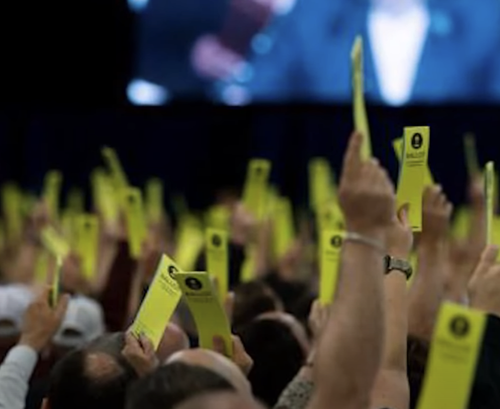Anyone who has visited a shopping mall understands the Big Idea behind a food court.
"If you want Mexican food, you go here. … If you want pizza, you go over there," said Kenny Lamm, the worship ministry strategist for the Southern Baptist state convention in North Carolina. "Then we sit together and eat whatever we want. …
“The question is whether a food-court approach works if you are seeking unity while leading worship in a church."
In the latest wrinkle in what researchers have long called the "worship wars," some church leaders are asking a blunt question about the decision to trade traditional hymnals for contemporary Christian music. That question: Has the typical Sunday service become a semi-professional concert instead of a communal worship experience for all believers?
As part of his work, Lamm hears from many pastors, musicians and church members. One recent letter – which he posted while keeping the writer anonymous – combined many hot-button issues in this debate.
After four weeks of visiting a church, the writer noted that he was constantly distracted during worship by "haze machines," "programmable lights that blind the audience," concert-level darkness in the auditorium, as well as musicians wearing "ball caps," skinny jeans, "Chuck Taylor" tennis shoes and other "stage" apparel.
Many of the new songs seemed to confuse the congregation.
"The melody is unmemorable. Very few in the audience seem to know the songs either; indeed as we looked around during one of the songs, we did not see one person singing – not one," noted this visitor. "Some of the songs are so high I cannot sing them. I wish the leaders would consider the average singer! … Why does just about every praise and worship song go up an octave and double in volume halfway through, then die back down at the end?"
Concerning volume levels, he added: "Driving home, my wife indicated that the excessive loudness was starting to cause some serious anxiety. Having earplugs available in the lobby is a sure sign there might be a problem."










